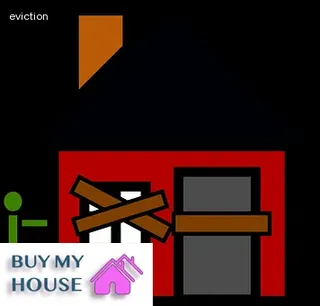Understanding the difference between squatters and trespassers is a vital component of understanding squatter's rights in Florida. Squatters are those who occupy someone else's property without permission, while trespassers enter a property without permission and leave shortly afterwards.
The distinction is important as squatters, over time, can gain certain rights to the property that trespassers cannot. In Florida, squatters may be able to claim an adverse possession if they have been living on the land for seven years or longer, paying all taxes associated with it and using it as if it were their own.
This does not apply to trespassers, as they have not occupied the land long enough to make this claim. Furthermore, trespassing laws in Florida are much stricter than those concerning squatting; for example, those found guilty of trespassing may incur fines or jail time depending on the severity of their violation.
All of these aspects should be taken into consideration when attempting to understand squatter's rights in Florida so that you know what legal avenues are available should you ever find yourself in such a situation.

In Florida, it can sometimes be difficult to determine if an occupant is a squatter or tenant. Squatters are individuals who live in a residence without the permission of the owner, while tenants have the legal right to occupy a property through an agreement with the landlord.
In order to determine if someone is a squatter or tenant in Florida, there are several considerations that must be taken into account. The first consideration is whether or not the occupant has paid rent.
If they have not, then there is strong evidence that they may be a squatter. Additionally, if there is no written agreement between the two parties, this could also indicate that they are squatters.
Another factor is the length of time they have been living on the property; squatters generally do not stay for long periods of time whereas tenants typically remain in one place for months or years at a time. Finally, if there is an agreement in place between the two parties but rent has not been paid for some time, it may also indicate that they are squatters as opposed to tenants.
Knowing these distinctions can help landlords and occupants understand their rights and ensure everyone involved stays within legal boundaries when it comes to real estate laws in Florida.
In the state of Florida, squatters' rights are a very important issue in regards to real estate laws. They refer to an individual's entitlement to take possession of property without permission from its owner and can be complex and difficult to understand.
To help with this situation, it is important for those involved to familiarize themselves with the proper legal steps that should be taken in order to ensure that all parties involved abide by the law. It is also important to recognize that while squatters' rights do exist in the state of Florida, they are limited and must be respected by both the owner and the squatter in order for any agreement or contract to be valid.
Furthermore, there may be certain circumstances where a squatter has more rights than an owner if they have been on the property for long enough. Ultimately, understanding squatters' rights in Florida is essential for anyone seeking out real estate opportunities or engaging with another party over a piece of property.
It is important for both parties to understand their respective rights as well as how these relate to Florida’s laws regarding squatters’ rights before entering into any agreements or contracts.

Removing squatters from a property can be a complex process that requires knowledge of Florida's real estate laws. In order to effectively remove a squatter, the property owner must first identify the legal steps they need to take.
The property owner should start by determining if the individual is legally occupying the property and if they have any rights to stay there. If so, the owner may need to take additional steps such as filing an eviction notice or hiring an attorney for assistance.
Additionally, it is important for the property owner to understand their rights as an owner and how these rights can be used to remove squatters from their property. Furthermore, understanding all relevant state and local laws can help ensure that any action taken is within legal boundaries and will protect both parties involved in the dispute.
As this process can be time consuming and difficult, it is important for owners to familiarize themselves with their legal options before attempting to remove a squatter from their property.
In Florida, it is important to take certain preventative measures to keep squatters away. This includes understanding the real estate laws and being aware of any potential risks when it comes to renting or leasing out a property.
By doing so, property owners can protect their rights and reduce the chances of someone illegally taking up residence on their land. Additionally, hiring a reputable lawyer for legal advice on how best to proceed with the property in question can be beneficial, as they will be able to provide expert guidance based on local regulations.
Furthermore, it is crucial that all rental agreements are drafted with clear language so that tenants are aware of the terms of the agreement and any potential consequences should they break them. Finally, posting proper notices on the property such as "No Trespassing" signs is a good way to make it clear that squatting is not allowed.
Taking these steps is key to safeguarding one's land from unwanted occupants and ensuring that their rights remain secure.

Evicting a squatter in the state of Florida is not as simple as it may seem. Squatters have certain rights that must be respected, and although they are considered trespassers on the property, evicting them is not always legal.
Before attempting to evict a squatter from your property, you must first understand the laws in Florida regarding squatters' rights. Certain criteria must be met before an eviction can take place, such as proof of ownership, proof that the occupant is living on the property without permission or paying rent, and that they have been living there for a certain amount of time (which varies depending on the situation).
You will also need to provide notice to the occupant that they are being evicted and offer them an opportunity to vacate the premises. If all these conditions are met, then you may proceed with an eviction; however if any of these conditions cannot be fulfilled or if it appears that any rules were broken during the eviction process then you may not legally evict a squatter from your property.
To be considered a squatter in Florida, an individual must have been occupying a residence for at least seven years without the owner's knowledge or consent. This can occur in a variety of ways.
In some cases, squatters enter an abandoned home and take possession of it, or they may access a property through an unlocked back door or window. They may also obtain access to the property through false or fraudulent representations made to the owner.
A squatter may also gain entry if they are given permission by someone who is not the real estate owner, such as a tenant with expired lease agreements. It is important to note that simply moving into an empty home without permission does not automatically make someone a squatter; they must reside there for seven consecutive years before being legally considered one.

When it comes to allowing a squatter on your property, there are potential legal consequences that must be considered. In Florida, the state has specific laws in place that protect the rights of squatters and their ability to claim a property as their own.
If you allow a squatter on your property and they meet the criteria, they may be able to establish a legal claim. This could mean you will no longer have ownership of the property, or portions of it such as minerals or oil beneath the surface.
You may also be responsible for paying back taxes or other fees associated with the property, which can be a costly expense. Additionally, if any damage has been done to the property while it was being occupied by a squatter, you may also be liable for repairs as well as any medical bills if someone was injured while on your land.
Although these potential legal consequences can be serious, it is important to understand that not all states provide protections for squatters and there are steps you can take to protect yourself from any potential legal issues related to squatters living on your property.
When dealing with a squatter, eviction is often the first approach taken by the property owner. However, there are other options that may be available to resolve the situation without resorting to legal action.
It is important to understand what rights a squatter has in Florida and how they can be used as a means of addressing an individual’s presence on someone else’s property. For example, it is possible for a squatter to obtain legal permission, known as adverse possession, from the courts which would grant them certain benefits such as protection from eviction and access to certain services.
Additionally, if a squatter is able to prove that they have been living on the property for an extended period of time then they may be able to gain ownership rights under certain circumstances. Finally, it is possible for an individual and property owner to enter into an agreement regarding rent or services in exchange for allowing someone to stay on their land.
This can provide mutual benefits and should be considered when attempting to find a resolution with a squatter.

When attempting to prove that someone is a squatter, it is important to understand the applicable laws in your particular jurisdiction. In Florida specifically, it is essential to know the real estate laws and regulations regarding squatting.
In order to prove that someone is a squatter, you must first identify any evidence of their presence on the property such as their use of utilities or any personal items stored on the premises. Additionally, it may be beneficial to take photographs or video recordings of the squatter entering and leaving the property as further evidence.
You should also obtain documentation from neighbors or other witnesses who can confirm that this person has been living on the property without permission. Finally, if possible, you should look into obtaining a legal document called an unlawful detainer which will provide additional proof that they are living on your property without authorization.
It is important to follow these steps in order to protect your rights as a homeowner and ensure that any action taken against them follows the law.
When renting a property in Florida, it is important to protect yourself against an unlawful entry by a squatter. To do so, you must ensure that your landlord-tenant agreement clearly outlines the tenant’s rights and obligations.
The landlord should include detailed information about who has the right of access to the property, how long this agreement is effective for, what restrictions are in place for the tenant to enter or leave the premises, and any additional clauses that may be relevant to the situation. It is also important to specify that anyone entering the premises without written consent from both parties will be considered a squatter and subject to legal ramifications outlined in Florida’s real estate laws.
Additionally, make sure that all communication between yourself and your landlord is documented in writing; this will help protect you if there are any disputes related to unlawful entry by a squatter. Being informed about your rights as a tenant and having documents that effectively outline these rights can help keep you safe from potential squatters on your rented space.
In Florida, a squatter can be evicted under certain circumstances. Squatter's rights in Florida give the occupier of a property some legal protections, but they do not protect against eviction proceedings initiated by the rightful owner or legal occupant.
According to Florida law, a squatter must prove that he or she has been living on the land for at least 7 years before they can claim any rights to it. If the person occupying the property cannot prove that they have been living there for at least 7 years, then they are not considered a squatter and can be evicted by the rightful owner or legal occupant.
It is important to note that squatters can still be evicted in cases where the person occupying the property does not meet these criteria. Therefore, if you are considering evicting a squatter in Florida, it is important to seek out legal advice from an experienced attorney who can help you navigate the laws and determine which course of action is best for your situation.

Squatting is a legal term that refers to the occupation of land or buildings without the consent of the owner or legal tenant. In Florida, squatters rights are governed by real estate laws that allow squatters to gain ownership rights over a piece of land after occupying it for a certain amount of time.
Squatters must meet two requirements in order to qualify for these rights: first, they must have possession and control of the property; second, they must have an intention to possess it as their own. If these two conditions are met, squatters can then pursue ownership rights through court proceedings.
In Florida, if a squatter has been living on the property with no objections from the property's owner for seven years or more, they may be able to acquire title to the property through adverse possession laws. Additionally, in some cases courts may grant exclusive possession before title is transferred.
Therefore, understanding squatters rights in Florida is important for anyone looking to purchase or rent real estate in this state.
Yes, in certain circumstances squatters may be protected under Florida real estate laws. Squatters are people who take up residence on a property without authorization or permission from the owner of the property.
By occupying a property, they gain certain rights and protections under the law. In Florida, there are many factors that need to be taken into consideration when determining whether or not a squatter has legal protection.
The length of time the squatter has been living on the property, whether or not they have made improvements to it, and their intent for occupying the land will all be factors in deciding if they can stay. Additionally, as with any other kind of real estate dispute, both parties must agree to terms in order for any sort of resolution to occur.
If a squatter does have legitimate rights, then he or she must begin eviction proceedings against them before they can lawfully remove them from the property. Ultimately, understanding your state's laws regarding squatters is essential before attempting to evict someone off your land.
In Florida, there are certain rights that apply to squatters, or unauthorized occupants of a home. Before kicking someone out of your house in Florida, it is important to understand the laws related to real estate and squatting.
Generally speaking, if someone occupies a property without permission for a period of time – known as an adverse possession – they may gain ownership rights over the property. However, this does not mean that you cannot remove a squatter from your house in Florida; it just means that there is a legal process you must follow.
First, you should serve the squatter with an eviction notice and give them time to vacate the premises. If they do not leave after being given notice, you can then file an action for eviction with the court.
At this point, depending on the outcome of the case, a judge may order the removal of the squatter through a writ of possession or other form of legal remedy. It is important to note that even if someone has been living on your property without permission for some time, you still have options available to regain control of your house in Florida.